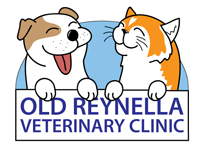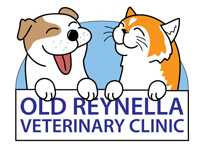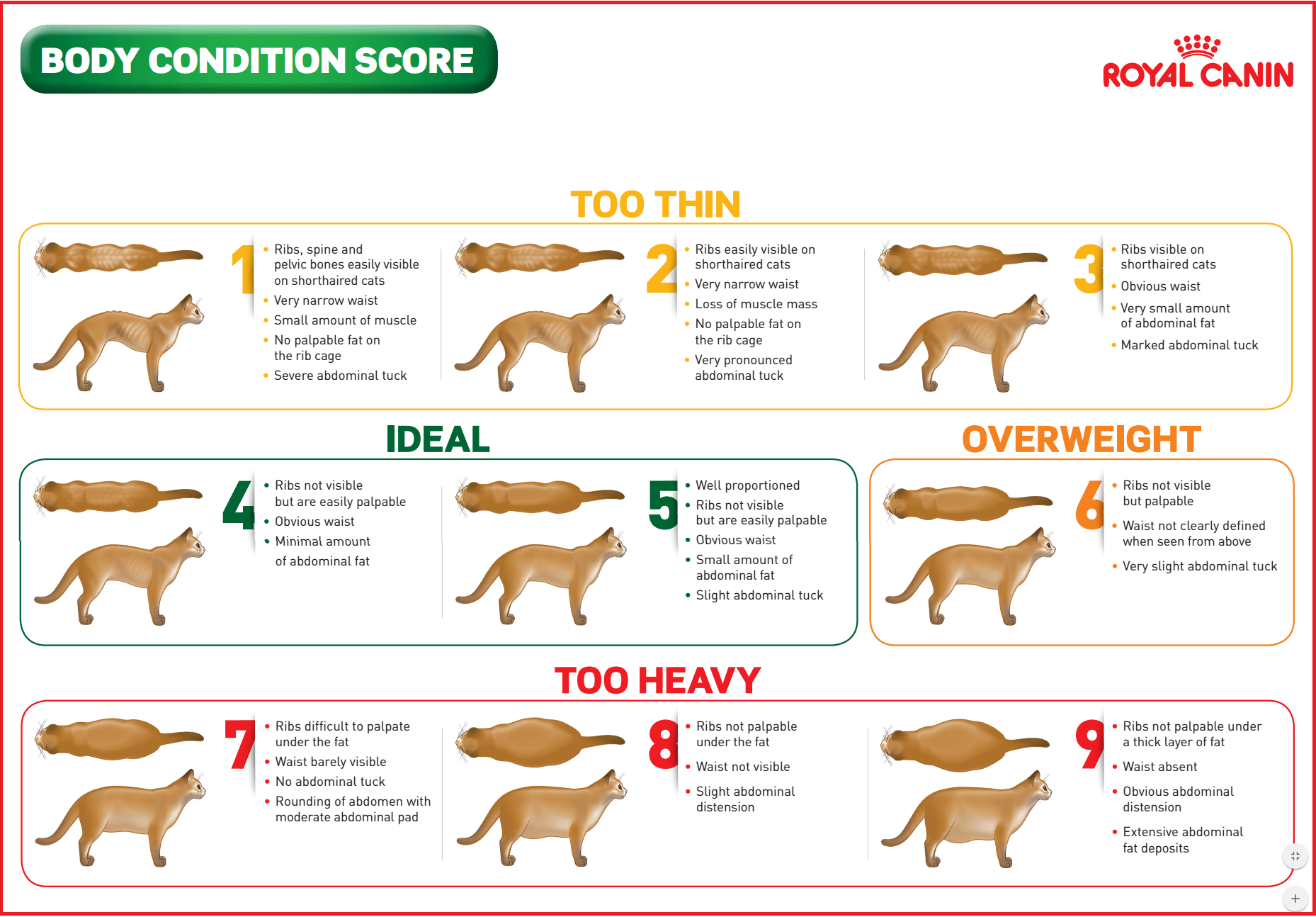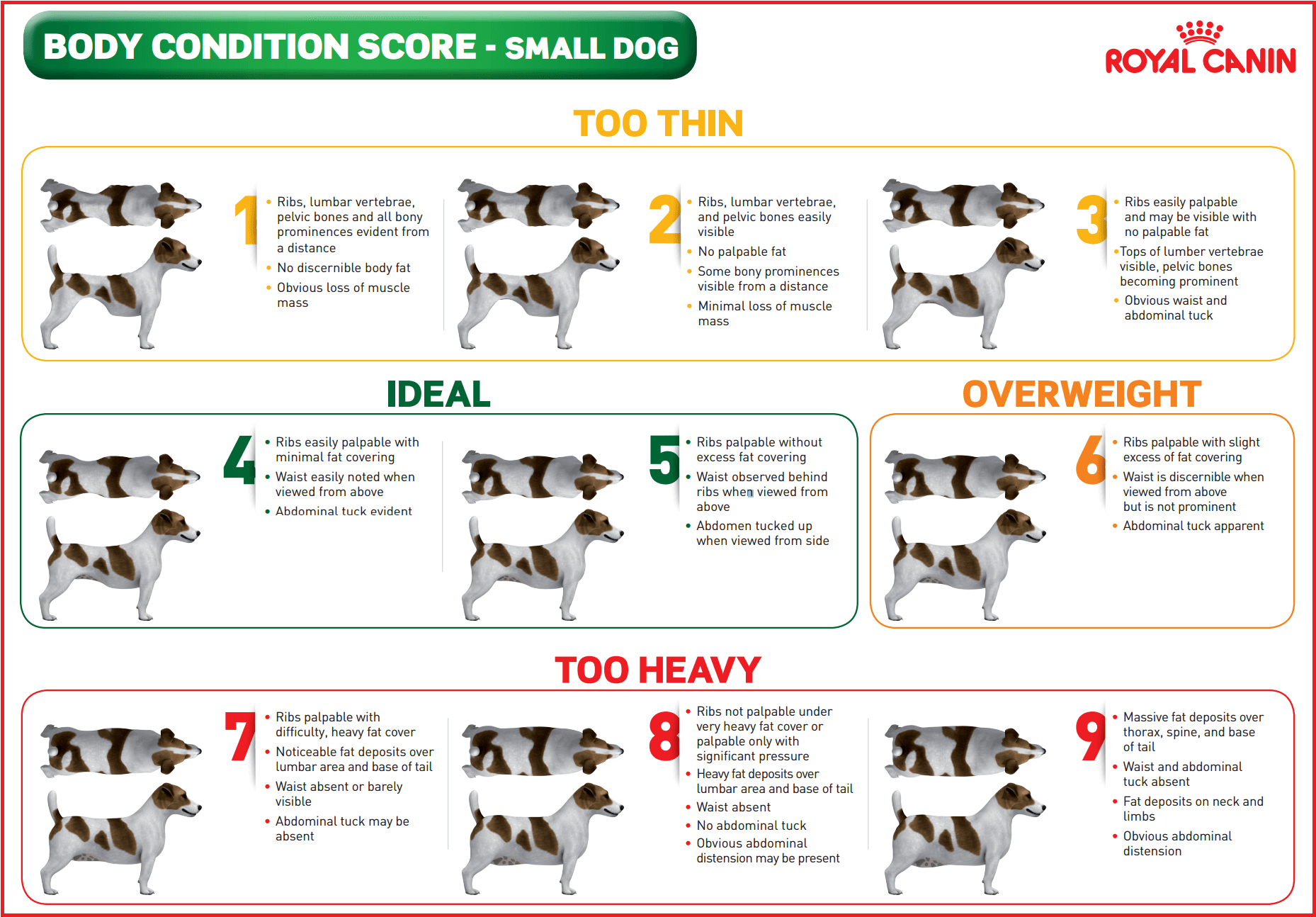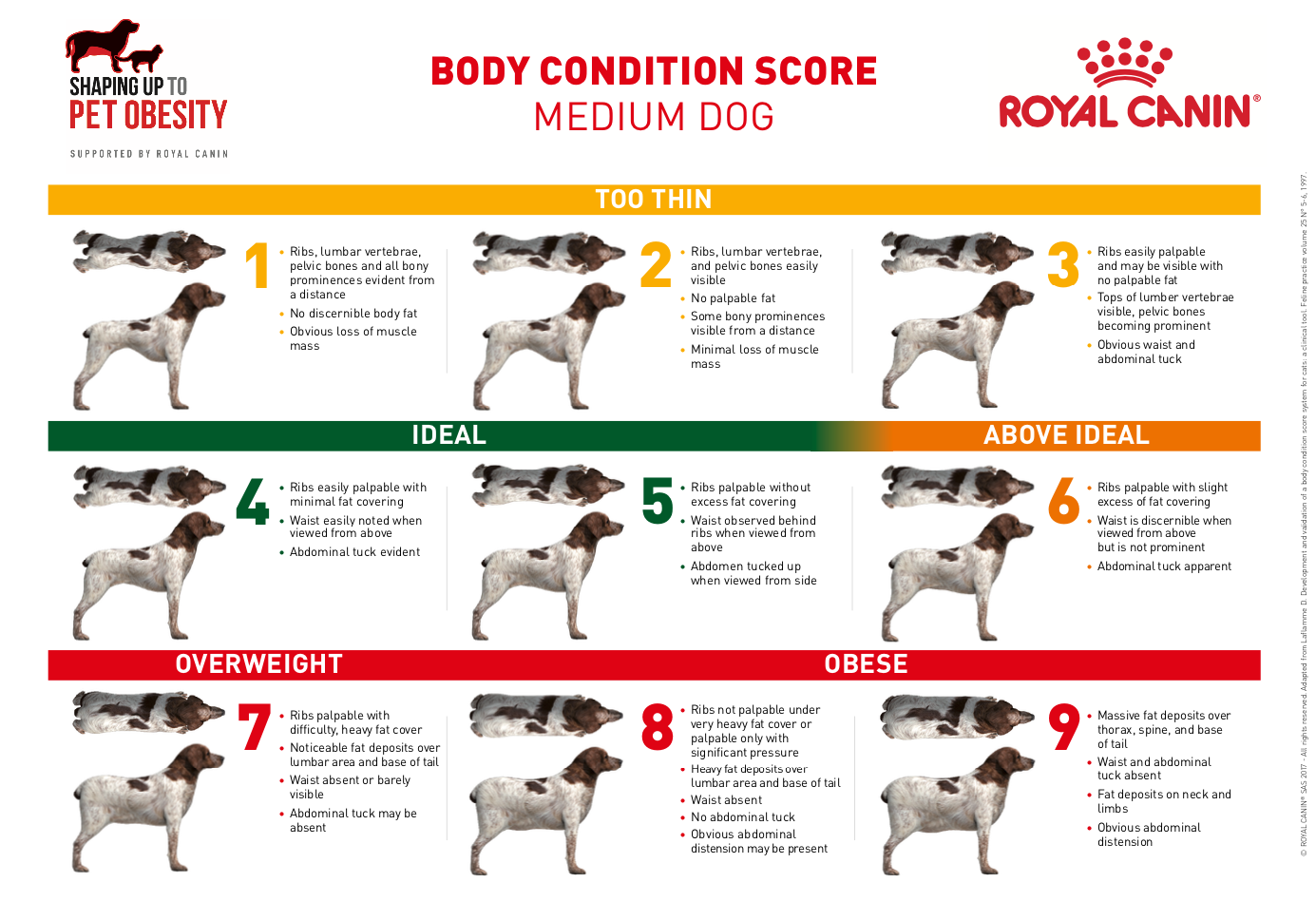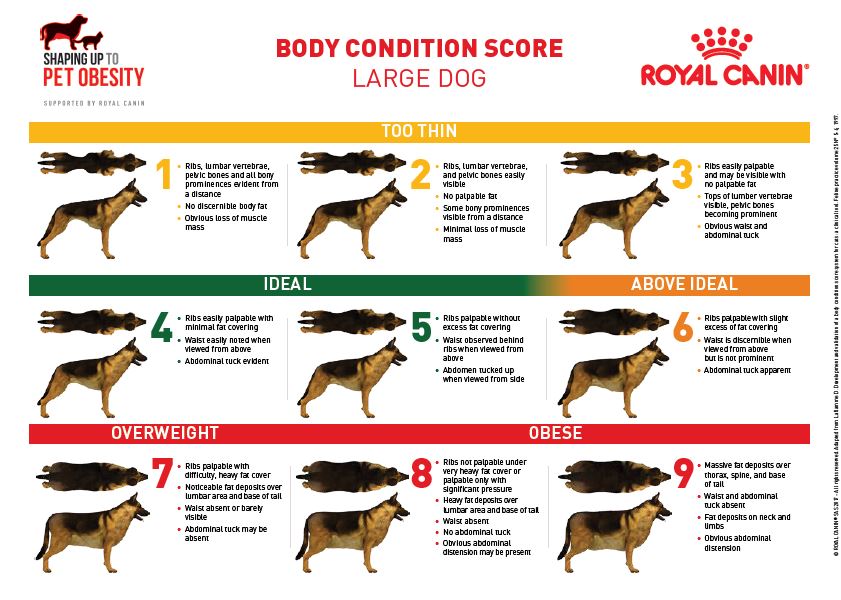Weight Gain is an increase in body fat and is one of the most significant health problems in domestic pets encountered in contemporary veterinary medicine. Just like us, obesity in pets can lead to significant risks and health problems later in life.
There are multiple factors that lead to excessive weight gain in pets, including but not restricted to:
- Age: Older pets are less active, have less energy and therefore require less calories.
- Breed: Certain breeds of dog and cats are predisposed to weight gain. Breeds such as Labradors, Cavalier King Charles Spaniels and Pugs are problematic breeds. In cats, weight gain is more common in mixed breeds.
- Desexing: Neutering results in a slower metabolism, therefore weight gain can occur without a change in diet.
- Gender: It is far more common for female pets to be overweight, regardless of desexing status.
- Lack of exercise: especially in pets who spend a lot of time indoors.
- Disease processes: Underlying illness can cause weight gain. For example: Arthritis or Cushing’s Disease.
- Overeating: pets with unlimited access to food often eat more than they need. This also includes treats and table scraps.
- Poor quality diet: Many low quality commercial foods are loaded with salt and fat. This improves taste which can lead to pets wanting to gorge. Think of this like a packet of crisps to us.
Overweight pets are more prone to developing:
- Decreased quality of life
- Many types of cancer, included Mast Cell Tumours, Mammary Tumours, Trasitional Cell Carcinoma and Bladder Tumours.
- Diabetes Mellitus
- Liver disease
- High Blood Pressure
- Arthritis and lameness
- Pancreatitis
- Gastrointestinal disease
- Skin problems
- Urinary problems
- Higher risk of anaesthetic complication
How can I tell if my pet is overweight?
In veterinary medicine we use the Body Condition Scoring System to grade your pet. These can be seen here:
When considering a dietary change for your pet, its really important to also take into consideration what treats they are also given on a regular basis. Treats and snacks and left overs in pets are often not digested or metabolised in the same way as for humans which can result in excessive weight gain far quicker than many owners expect. Below are a selection of ‘treat comparison charts’ for pets:
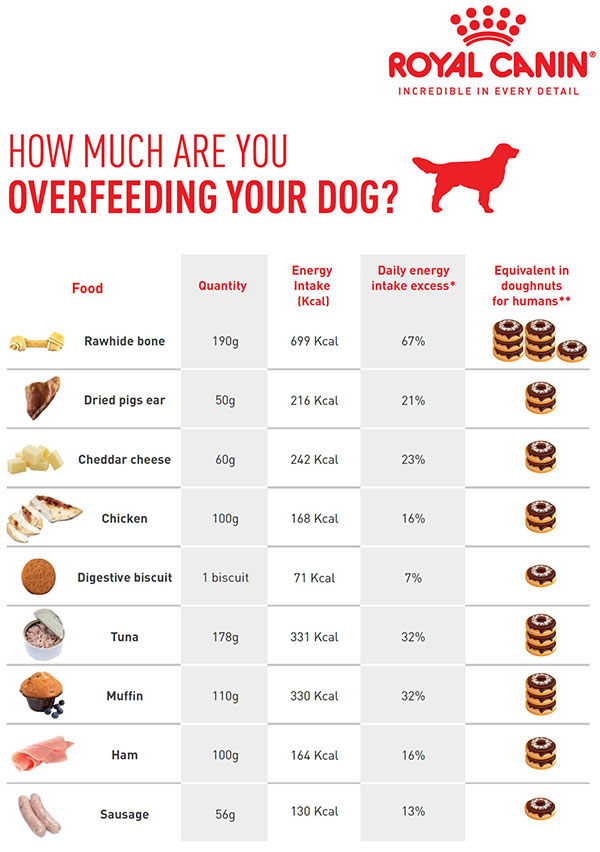
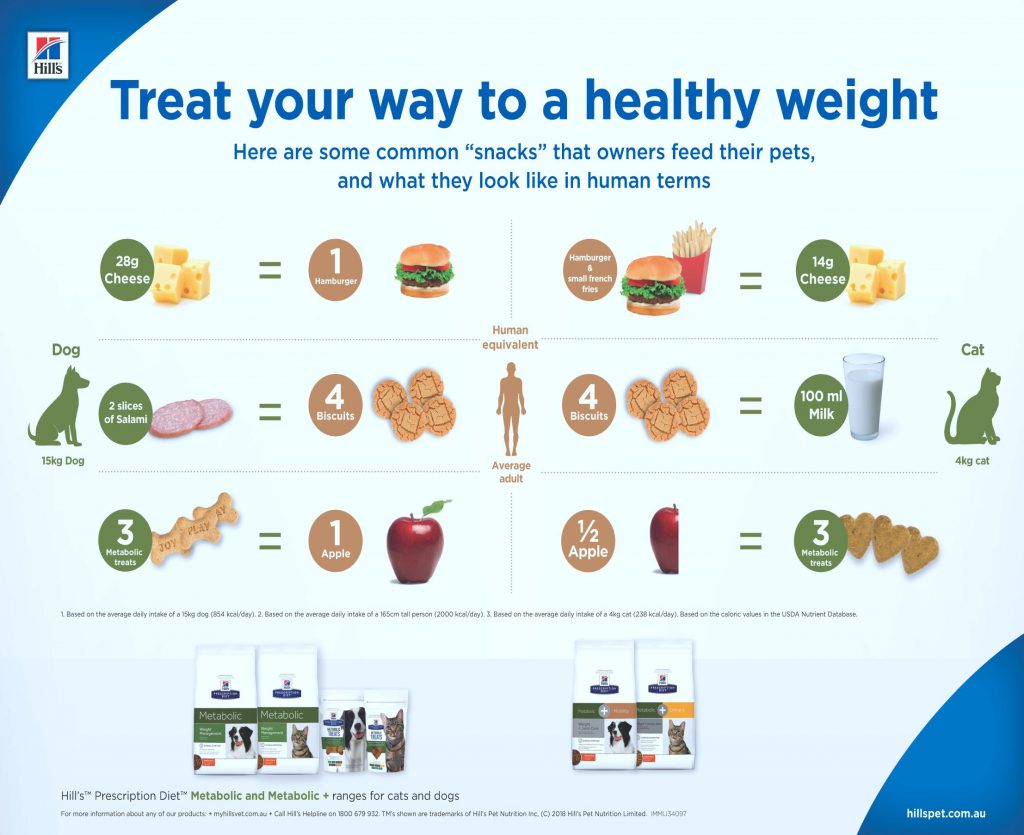
In addition to monitoring treat intake, we recommend changing your pet over to a complete diet that can work to increase their metabolism and maintain lean and healthy muscle mass to help burn off calories.
Hills Prescription Metabolic Diet now comes in a range of foods to also treat some of the comorbidities associated with excessive weight gain including arthritis and joint disease in dogs, or Lower Urinary Tract Disease in cats.
Should you have concerns that your pet is overweight, please contact the clinic or pop in to talk to one of our helpful nursing staff about putting them back on the right track.
